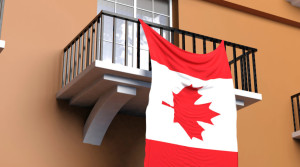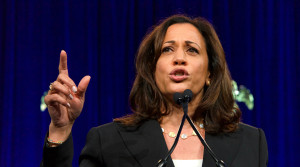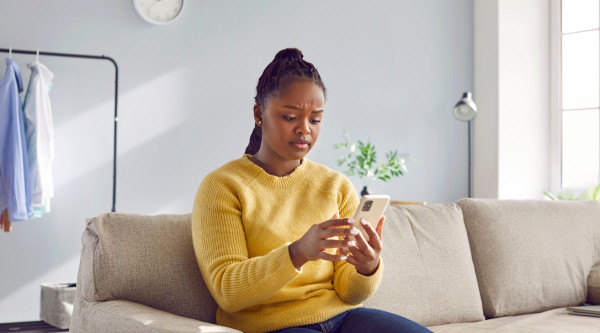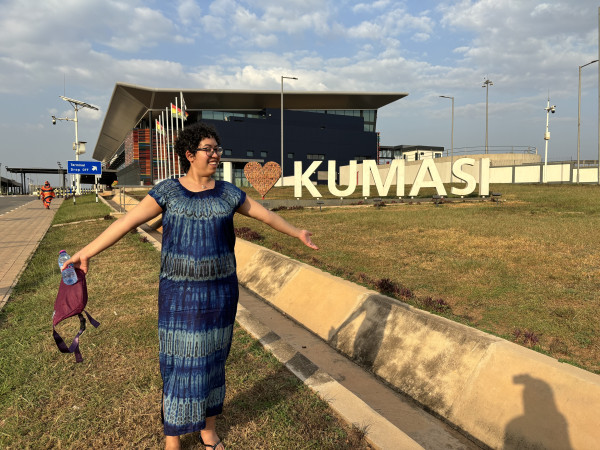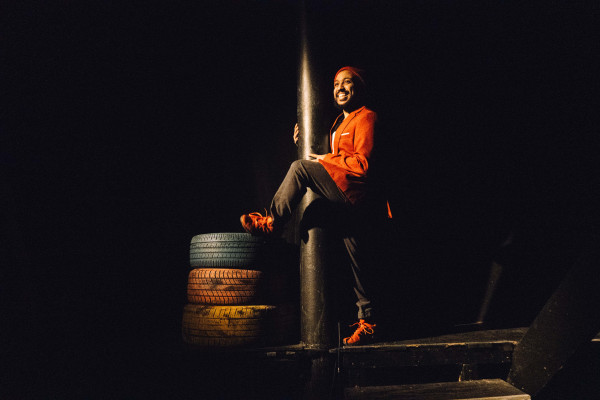After the game, I asked the guys to gather around, not just to congratulate them but to thank them.
I’ve played with the team all year since 2017 but missed most of the first half of the season because I was dealing with the dissolution of my long-term relationship. It was a painful transition: I had to stay with family members and take time off work, and there were a lot of tears.
One night, I went to the field even though I knew I wouldn’t play because I needed to get out of my mental and physical space. But in addition to showing face, I knew I wanted to be around friends. No one knew what was happening, and I had no intention of addressing it, but I didn’t want to be alone.
At some point while I was on the sideline, I suddenly became overwhelmed and started crying—the ugly kind, too. The captain and two teammates consoled me on the field. I told them what was going on, and we continued the conversations after the game.
Whether they volunteered to share their experience going through a similar situation, to hang out, express their sympathies or offer to be a listening ear or give reassurance, the support was heartwarming, and I greatly appreciated it. One teammate remarked that he’d never seen me so upset before which I was taken aback by. I used to get upset—at myself and the audience— if I cried in public. Instead, I was happy, proud and thankful that I chose to be vulnerable and had people I was comfortable to do that with—shoutout to my therapist.
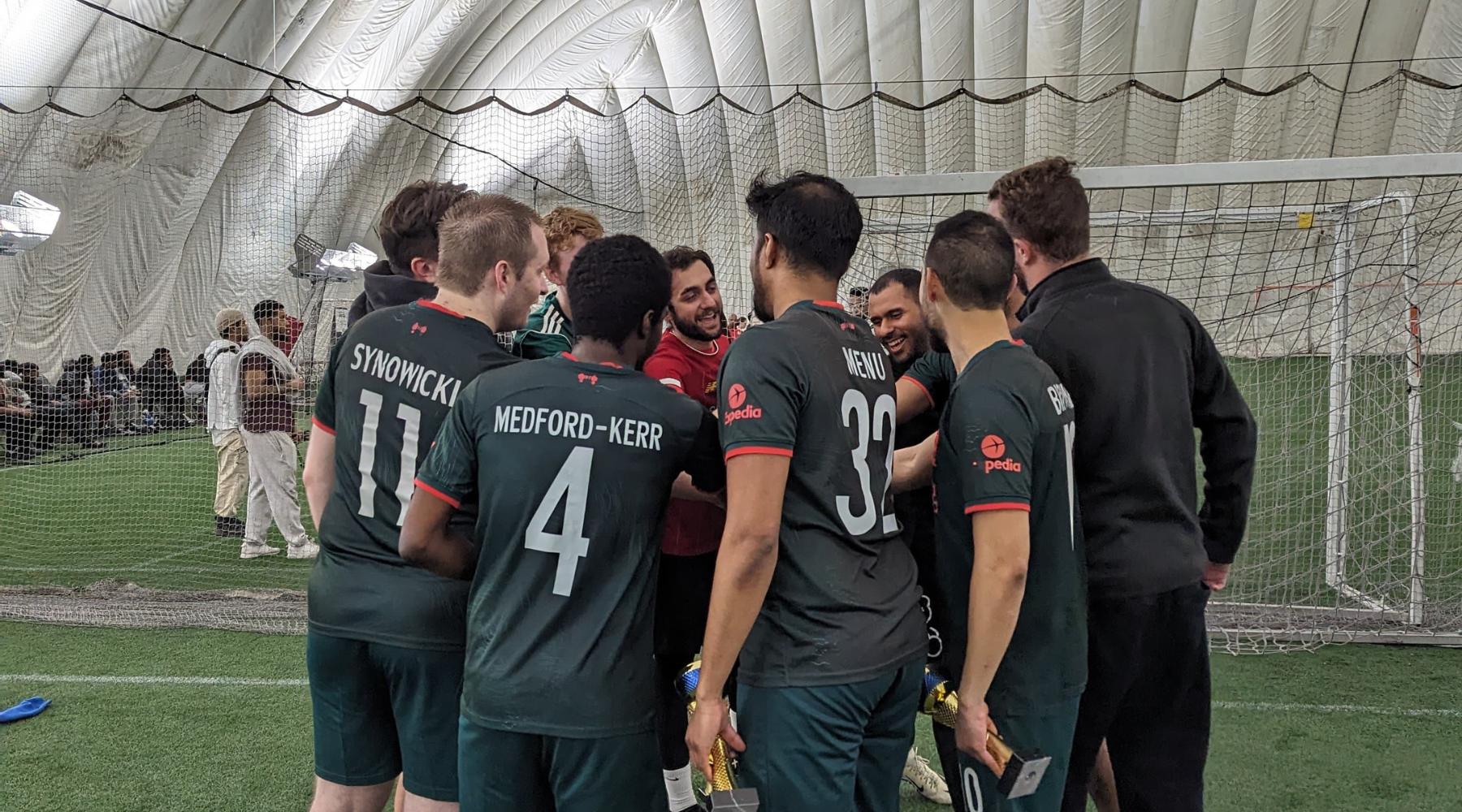
I recently watched a film dealing with healthy masculinity and mental health themes. We Will Be Brave is an intimate film that follows the journey of the Toronto-based Good Guise collective over four years as the members share their lived experiences and struggles, discuss growth and shame, and reevaluate masculinity. The six men lean on each other and discuss the importance of support, self-reflection, accountability, and becoming comfortable with vulnerability. Art as a tool for self-expression is key to the Good Guise.
{https://www.youtube.com/watch?v=sNXlKUZJ4UU}
The film’s director, Chrisann Hessing, says she first saw a racialized man on stage expressing vulnerability during a spoken word performance. The performance moved her but made her question why seeing something like that was so rare. When she heard about Good Guise's initiative, she knew she wanted to work with them.
“What really drew me to them specifically was the fact that they used less words and more art to foster that creative expression as an avenue for men to just tap into their emotions and understand what they're going through.”
Part of Good Guise’s perspective is that toxic masculinity is a mask men wear that prevents them from engaging with their feelings in healthy ways. They don’t want to be the type of men who uncritically respond “I’m good” when asked how they are as a default.
“We need to have a space that prioritizes men’s increased capacity of expression and a prioritization of vulnerability and seeking wellness,” says Good Guise founding member Julian Diego, in the film.
Sports are more of an outlet for emotions than a venue for expressing them. However, I encourage men to take advantage of the regular opportunities to hang out and the familiarity that comes with it to practice healthy masculinity. I see my teammates more in a season than I see my other friends over the year.
One of the highlights of last summer was chatting with one of my friends after a soccer game about where we were in our lives. We talked openly about finances, our careers, how our families were doing, our relationship situations, adjusting to being 30, and other things I’m forgetting. We talked about soccer too, but it was the most minor portion of the conversation. This was 1-2 hours on a rooftop under a full moon. While we didn’t intend for such a romantic set of circumstances, it is appropriate if the goal is deepening platonic love.
Between my breakup and turning 30, I’ve spent considerable time this year reflecting on myself, my relationships, and what I want the next decade to look like. I decided I wanted to bond more with my guy friends and foster deeper relationships. For me, that means more one-on-one time to listen, ask questions, and share. It means more regular check-ins and speaking with more kindness and sentimentality.
In making We Will Be Brave and talking to people about it, Hessing recalled: “that people said they didn't even know they could do this, it wasn't an option to talk about their emotions.” Hessing says the more people were inspired to reflect on themselves and talk to each other, the more they realized that they were not alone in how they felt.
The film argues that while it’s important to meditate and do therapy, they’re not enough. You start to reap the benefits of those practices when you’re with others. The Good Guise challenges the audience and each other to discard the idea that masculinity is one man against the odds. I agree; that definition sounds like a lonely existence and a huge burden, likely leading to grievances.
The Good Guise also argues that traditional understandings of masculinity are really rooted in fear—of failure, rejection, not being good enough, etc. Instead, they say men need to accept that they’re not perfect, and that’s okay. They say the most important thing is being brave enough to own up to your mistakes, work to improve, and stand with uncertainty or discomfort.
Hessing says in life and her film, it’s a constant journey to improve.
“We're showing the more tender sides of people, the sides that have traditionally been told to be kept hidden or you'd be shamed for,” Hessing said. “I wanted to elevate that word to say that vulnerability is bravery.”
Hessing hopes Good Guise and groups like it continue to exist and that their important work is recognized and supported. She says it can be a blueprint for interacting with other men. She also wants everyone to engage in more intimate conversations with themselves and their loved ones to connect on a deeper level and foster care.
“There’s so much to gain by doing this reflection and by engaging and tapping into this side. That's really stuck with me, that it really is an enriching thing, it will make your life better by just reaching out and connecting with the people in your life,” Hessing said.
We Will Be Brave will launch on CBC Gem in February 2025. The film is on a national screening tour, with its next stop in Calgary on November 14.
In November, many men are eager to style their facial hair in a moustache to raise awareness for men’s health issues. But this month, I encourage my fellow men to expose their chins in a different way. I challenge you to expose yourself to your full suite of emotions by exploring the power of vulnerability.
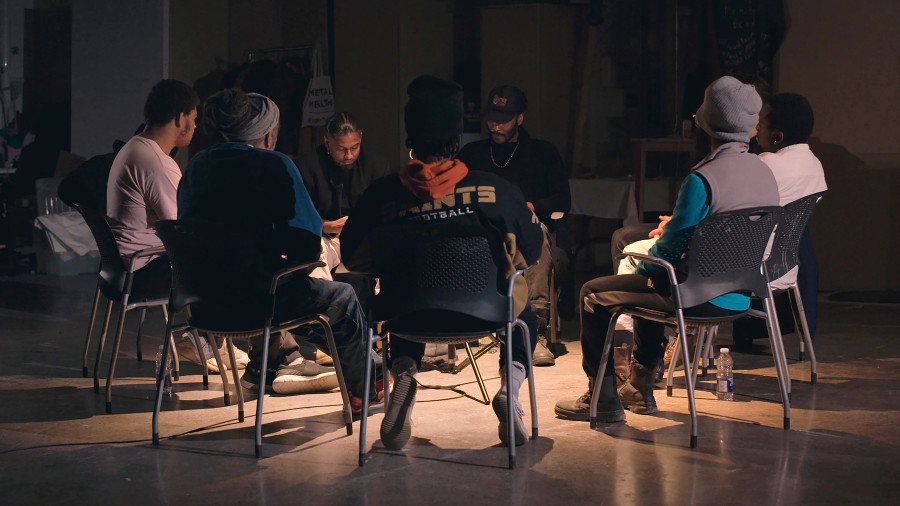
 By
By 




